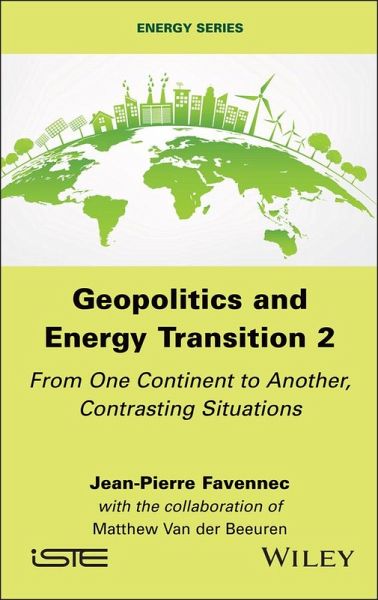
Geopolitics and Energy Transition 2
From One Continent to Another, Contrasting Situations

PAYBACK Punkte
74 °P sammeln!
The energy sector is undergoing unprecedented change. Twenty years ago, the main concern was having enough oil and gas, whereas today, political leaders are faced with the need to reduce the CO2 emissions produced by still-dominant fossil fuels, without being able to totally rely on renewable energies, which are intermittent and whose share in energy production remains low. Geopolitics and Energy Transition 2 examines the energy sector and the state of energy transition continent by continent. North America is rich in resources, while the situation is mixed in South America. Europe advocates t...
The energy sector is undergoing unprecedented change. Twenty years ago, the main concern was having enough oil and gas, whereas today, political leaders are faced with the need to reduce the CO2 emissions produced by still-dominant fossil fuels, without being able to totally rely on renewable energies, which are intermittent and whose share in energy production remains low. Geopolitics and Energy Transition 2 examines the energy sector and the state of energy transition continent by continent. North America is rich in resources, while the situation is mixed in South America. Europe advocates transition but remains dependent on imported fossil fuels. The CIS has enormous resources at its disposal and uses them as political weapons. Access to energy is a priority for Africa. Asia is faced with growing energy needs and pollution, which should accelerate energy transition. The Middle East, a champion of hydrocarbons, is launching into solar energy.













